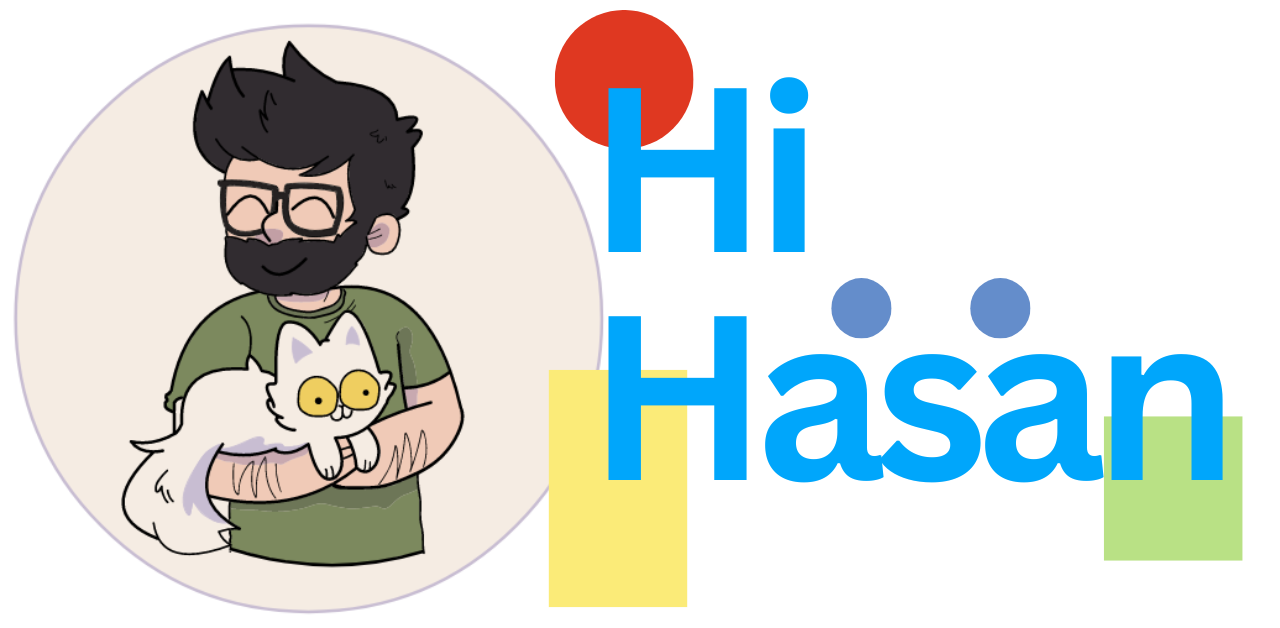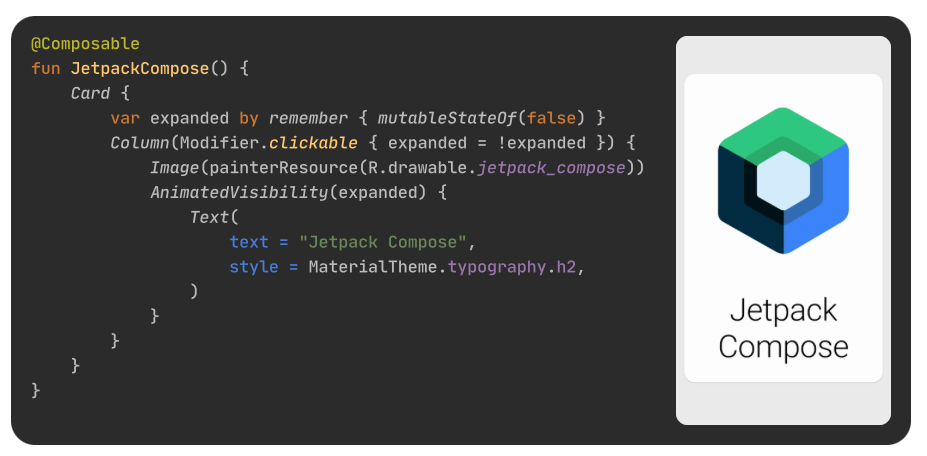Developed by Google, Compose is a state-of-the-art UI toolkit that promises to revolutionize the way native user interfaces are built in Android applications. Its official release in 2021 as part of Jetpack Compose is expected to simplify and streamline the UI creation process for Android app developers. With its foundation on a reactive programming paradigm, Compose allows for defining UIs as a function of the application’s state, making it a game-changer in the world of Android app development.
Advantages of Compose for building UIs:
- Declarative Syntax: Jetpack Compose uses a declarative syntax similar to SwiftUI. Instead of specifying how to alter the UI, developers determine what the UI should look like based on the current state of the application. This technique results in more streamlined, intuitive, and effortless code to manage.
- Live Preview: Android Studio’s Compose feature offers a real-time preview option that allows developers to see instant updates to their UI code. This feature helps enhance the development process by enabling developers to quickly visualize the effects of their changes without having to deploy the entire app on a device or emulator.
- Kotlin Integration: We are delighted to inform you that Compose has been crafted using Kotlin, the official Android programming language. By leveraging Kotlin’s cutting-edge features, such as type safety, extension functions, and coroutines, developers can simplify UI development and make the code more expressive and efficient. This will enhance your coding experience and enable you to create more robust Android applications.
- Jetpack Integration: We are thrilled to announce that Compose seamlessly integrates with other components of Android Jetpack, Google’s comprehensive suite of libraries and tools for Android development. This integration simplifies essential tasks such as navigation, data binding, and state management, empowering developers to create more robust and scalable Android applications. We are confident that this integration will significantly elevate your development experience.
- Material Design by Default: Jetpack Compose has built-in support for Material Design, Google’s design system for Android apps. Developers can quickly implement Material Design components, themes, and styles, ensuring a consistent and visually appealing user experience.
- State Management: Developers using Compose can take advantage of a convenient built-in state management system. With this system, it’s easy to handle changes to the user interface based on the application’s state. Compose automatically observes state variables, and when they change, it recomposes the UI, updating only the affected parts. This makes building responsive and dynamic interfaces that adapt to application state changes easy.
- Animation Support: If you’re an Android app developer looking to create a more engaging user experience, Compose might be just what you need. With its simple functions, Compose makes it easy to implement animations on UI elements, resulting in smoother and more interactive app interactions. Say goodbye to clunky user experiences and hello to a more seamless and enjoyable app experience for your users.
- Composable Functions: In Compose, UI elements are represented as composable functions. These functions are small, reusable, and composable units that make UI code modular and easy to understand. This approach promotes code organization and maintainability.
- Testing: Developers can enjoy the ease of testing Compose’s composable functions independently, which results in more robust unit tests for their UI code. This, in turn, enhances the quality of the code and aids in catching any potential bugs early on in the development process.
- Multiplatform Potential: In the early days, Compose primarily focused on Android; it has the potential for multiplatform development. This means that in the future, Compose could be used for building user interfaces (UIs) across different platforms. With the introduction of Kotlin Multiplatform, developers can look forward to utilizing Compose for UI development on various platforms beyond just Android.
Jetpack Compose is a new and powerful way for Android developers to create stunning and highly interactive user interfaces for their applications. This cutting-edge technology offers a more efficient, expressive, and flexible approach to UI development, making it easier than ever for developers to build native Android user interfaces. With its declarative nature and seamless Kotlin integration, Compose empowers developers to create visually impressive UIs while reducing development time and complexity. Jetpack Compose is definitely worth exploring if you’re an Android developer looking for a fresh and innovative approach to UI design.

